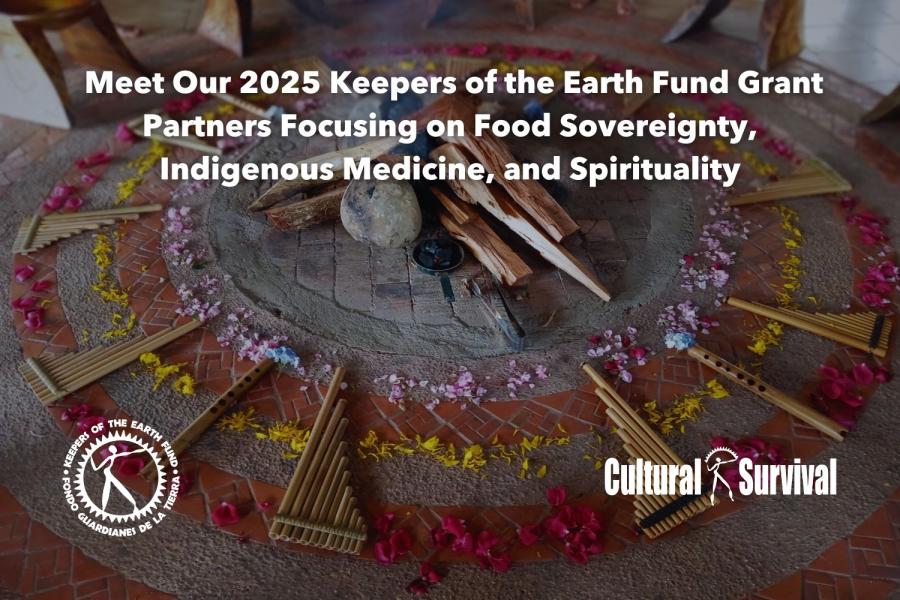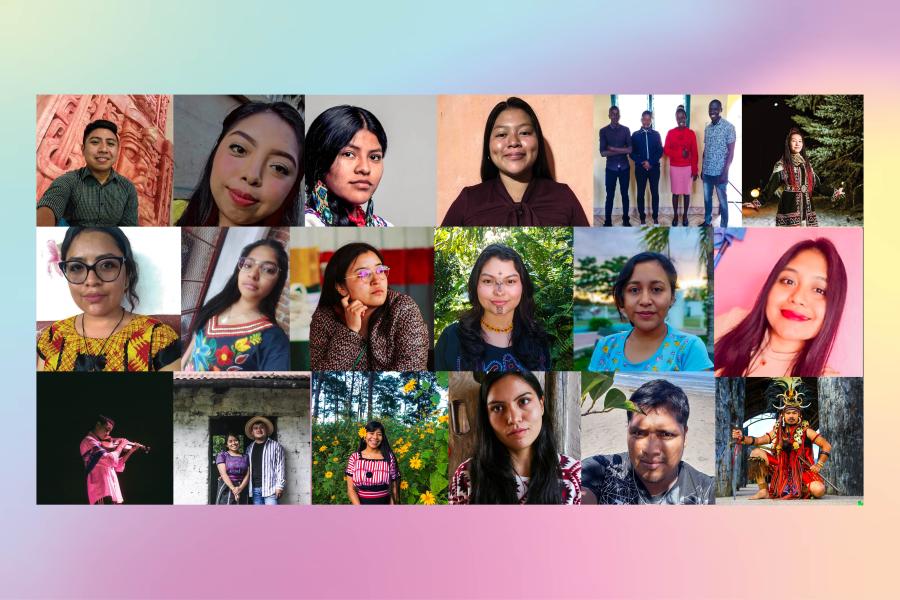This special issue of Cultural Survival Quarterly features selections from our forthcoming book, State of the Peoples: A Global Human Rights Report on Societies in Danger, to be published by Beacon Press in September 1993. Cultural Survival has built up an international network of scholars and specialists who help us document what is happening to threatened societies. Both this network and the Global Information Service for Indigenous Peoples, which keeps us in regular communication with endangered societies worldwide, are coordinated through the Center for Cultural Survival, the research arm of our organization. We have drawn on these resources to publish State f the Peoples in 1993, officially declared the Year of Indigenous People by the United Nations.
State of the Peoples is the most authoritative and complete survey of its kind. It focus on actions and strategies to defend the rights of indigenous groups. The first section, "Societies in Danger," features expert articles on crucial issues facing indigenous peoples, including a report on the Penan in Borneo that is featured in this quarterly. These case studies are, inevitably, only the tip of the iceberg, but they enable the reader to feel what it's like to be on the receiving end of the political and economic pressures applied to indigenous peoples.
"Resources for Action," also excerpted here, is an indispensable guide for activists, academics, and the press. It contains charts, tables, and key documents, including the Draft Declaration on the Rights of Indigenous Peoples, the Earth Summit statement, and much more.
The bulk of our report, however, consists of the "Global Rights Summary," which aims at providing up-to-date information on the present state of indigenous and minority rights in each of ten regions around the world. Comprising over 200 pages in all, this section features ten regional overviews and hundreds of short entries on critical issues or threatened peoples in each region.
Cultural Survival plans to publish new editions of State of the Peoples on a regular basis in the future. While indigenous peoples' concerns are now becoming a part of the international human rights agenda, indigenous societies are still in a precarious situation. Indigenous peoples are routinely mistreated because they are not part of the mainstream and are too weak to fight back strongly against abuses of power. Indigenous majorities are also barbarously treated, as happened when the Guatemalan army waged a brutal war on indigenous groups, who comprise over 60 percent of Guatemala's population. There seems to be a worldwide trend towards persecuting the outsiders in our midst - in rich countries that pride themselves on democratic values and enlightened attitudes as well as in poorer ones, where one expects ethnic rivalries and competition for resources to be severe.
Yet there are grounds for hope. When the United Nations adopted the Universal Declaration of Human Rights following the Second World War, it focused on the rights of individuals. The United Nations has always had to be attentive to the rights of its member states, but it has only recently become willing to consider the rights of peoples who do not control states. This is due, in no small part, to the efforts of Julian Burger, who has worked tirelessly within the United Nations to bring the concerns of indigenous peoples to the world's attention. We are most grateful to him for finding time during the World Conference of Human Rights in Vienna this year to write an introduction for State of the Peoples. He points our that when the first World Conference on Human Rights was held in 1968, indigenous peoples were still considered "a remnant of the past, destined to an inexorable assimilation into mainstream societies." In 1993, by contrast, their issues and their future are very much on the world's agenda.
We are also honored that Rigoberta Menchu, a Guatemalan Indian and winner of last year's Nobel Peace Prize for her vigorous campaigning for indigenous rights, agreed to write the forward to our book. Menchu lost her whole family and witnessed the torture and killing of relatives and neighbors during the army massacres in Guatemala.
Now indigenous peoples are better organized than ever before. They are willing and increasingly able to fight for themselves legally and politically. It is vital that they find allies in the world at large, for theirs is a struggle that concerns us all. It affects us all when powerful interests rob indigenous peoples' lives, lands, or resources. We cannot ignore such things unless we resign ourselves to living in a world where the unscrupulous destroy the environment with impunity and the strong routinely overpower the weak. If we wish to avoid that nightmare world, we must deal justly with indigenous peoples - and indeed with all peoples - in a spirit of tolerance and pluralism. That is the vision that I put forward when I founded Cultural Survival. Pluralism is no more utopian an ideal than democracy is - indeed, the two are intimately related. Both ideals are based on a vision of a world where individuals and groups treat each other with mutual respect. This is the vision of Cultural Survival, and it is an eminently practical idea for a better world, not just for indigenous peoples, but for us all.
Article copyright Cultural Survival, Inc.


